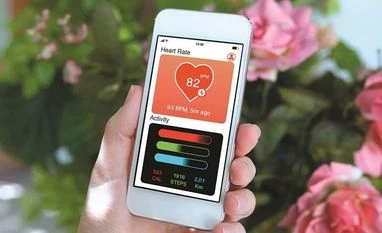Neodocs, a health technology startup that utilises smartphones to conduct diagnostic tests, plans to perform 100 million tests in the next three years, a big jump from the 250,000 tests it has conducted since starting operations in March 2020.
The company employs diagnostic laboratory (lab) principles through a smartphone application (app) and a test card. This system analyses chemical reagents, inducing colour changes in response to different parameters. This allows testing on any phone, even under varied lighting conditions, utilising testing, data building, and computer vision models.
The startup, founded by IIT Bombay alumni Nikunj Malpani, Anurag Meena, and Pratik Lodha, is working on expanding its portfolio to include tests for lipid profile, diabetes, liver function, fertility issues, hairfall, eye care, anaemia, and more.
Neodocs is also collaborating with various pharmaceutical companies, doctors, and government agencies to expand its reach. The company has also started its international expansion with the funds raised, with deals already closed in Australia and Southeast Asia.
Neodocs founder Nikunj Malpani says, “We aim to conduct 100 million tests in the next three years (a 400fold increase from its current base), and we will achieve this by investing in our existing channels in India, developing new tests, and expanding internationally.”
More From This Section
Neodocs’ long-term vision is to “build a personal lab for everyone on the spot”, where people can conduct tests on their own, without having to rely on traditional diagnostic labs. Malpani believes that the company’s smartphone-based approach is well-positioned to take advantage of the growing smartphone penetration and internet connectivity in India.
Currently, Neodocs offers urine tests for health conditions such as urinary tract infection (UTI), diabetes, kidney disease, wellness, maternity care, and elderly care. Along with this, it also has a smartphone-based pregnancy detection kit.
The UTI testing kit is priced at Rs 249, whereas the chronic kidney testing kit and diabetes testing kit are priced at Rs 499 on the app.
Explaining how the test works, Malpani says, “We introduce this innovative concept of smartphone testing by applying the same principles used in diagnostic labs. While traditional labs utilise large machines and chemical reactions to estimate values, we employ a smartphone and a test card for instant urine tests. The test card, which has several chemical reagents once put in the urine sample for 1-2 seconds reacts to different parameters, causing a colour change, which is later captured by the phone’s camera.”
“There is no magic involved, extensive testing, data building, and computer vision models ensure accurate results under varying lighting conditions. We initially focused on UTI and chronic kidney disease, but now we plan to expand our testing to cover fertility, eye risk, anaemia, lipid profile, diabetes, liver health, and more,” adds Malpani.
For tests like anaemia, the process would involve a prick on the finger and putting it on the test card. Then a photo will be taken by the phone and sent to the server for analysis. The results are expected to reach the patients within a minute.
Speaking on the accuracy of the servers, Malpani adds, “The server constantly undergoes continuous training and certification processes. We also very closely work with institutions like IIT Bombay’s biomedical lab, where we get to work on a range of artificial samples. We also do validation testing studies on hospitals such as Sion Hospital in Mumbai. From there, we also got the performance evaluation study done. Also, while we build data, we use eight different phones under five different lighting conditions to help us with accuracy.”
Earlier this month, Neodocs raised Rs 16.6 crore ($2 million) in a seed funding round led by Omidyar Network India. The round saw participation from various investors, such as Y Combinator, 9Unicorns, Gemba Capital, Titan Capital, and individuals such as Rohit M A (Cloudnine), Kunal Shah (Cred), Varun Alagh (Mamaearth), Viren Shetty (Narayana Healthcare), Harshad Reddy (Apollo Hospitals), and Vivek Gambhir (boAt).
)